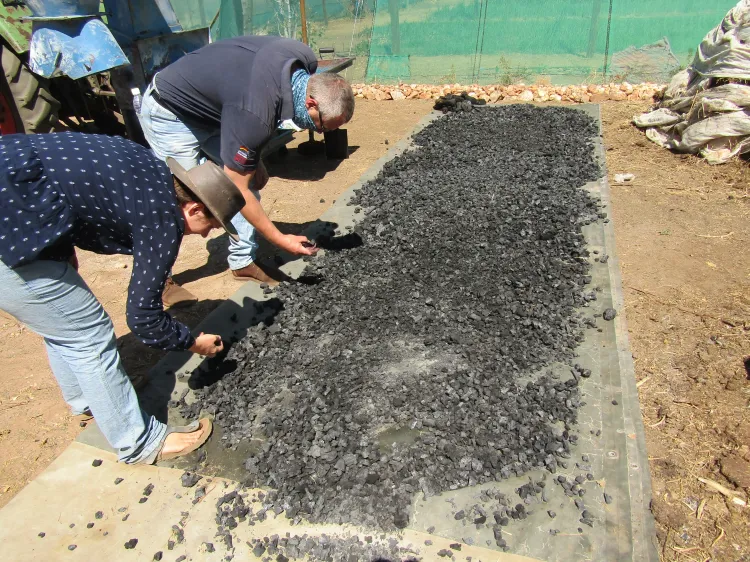How is Namibia Planning to Achieve Food Sovereignty and Reduce Agricultural Imports?

Synopsis
Key Takeaways
- Namibia has launched a national strategy to enhance food sovereignty.
- The Potato Development Scheme aims at boosting local production and job creation.
- Approximately 70% of the population relies on agriculture for their livelihood.
- The strategy aligns with the Sixth National Development Plan.
- Investment in infrastructure is essential for economic growth.
Windhoek, Sep 26 (NationPress) Namibia has launched an extensive national plan aimed at rejuvenating its agricultural sector, bolstering food sovereignty, and decreasing its reliance on agricultural imports.
This strategy was officially introduced on Friday in the capital city of Windhoek by the Minister of Agriculture, Fisheries, Water, and Land Reform, Inge Zaamwani, who presented the annual report of the Namibian Agronomic Board alongside the Five-Year Integrated Business Plan, Five-Year Crop Value Chain Development Strategy, and the Potato Development Scheme, as reported by Xinhua News Agency.
"These documents are not just plans; they represent a renewed commitment to revolutionizing the crop subsector and speeding up food self-sufficiency," she stated.
Zaamwani explained that the new strategic vision is summarized in the Five-Year Integrated Strategic Business Plan and the Five-Year Crop Value Chain Development Strategy.
She asserted that this strategy directly aligns with the nation's objectives outlined in the Sixth National Development Plan, where agriculture has been prioritized as the top focus.
"The Crop Value Chain Development Strategy employs a comprehensive value chain approach, addressing all aspects of the crop subsector, from inputs (such as seeds, fertilizers, and equipment) to production, processing, storage, and marketing," she elaborated.
Zaamwani noted that the most immediate high-impact initiative is the Potato Development Scheme, which aims to enhance local production, generate jobs across the potato value chain, and lessen dependency on imports. It will also foster agro-processing activities like chips, crisps, and starch production while serving as a model for similar initiatives in other priority crops.
By launching these plans, the country is paving the way toward a future where the crop sector is sustainable, resilient, and globally competitive.
Approximately 70 percent of Namibia's population relies on agricultural activities for their livelihoods, primarily within the subsistence sector.
In August, Namibian Prime Minister Elijah Ngurare committed to expediting efforts to tackle rural development issues, such as inadequate access to clean water, feeder roads, and digital connectivity, as part of the government's pledge to foster a more inclusive nation.
While speaking in northern Namibia, Ngurare pointed out that many rural households continue to lack essential services, even decades post-independence.
"The absence of reliable access to clean water poses a fundamental challenge that impacts not only health but also the ability to thrive," he emphasized, reaffirming the government's determination to expand potable water supply, rural road infrastructure, and electricity to underserved regions.
He highlighted that infrastructure development is central to Namibia's growth strategy, stating that robust infrastructure is crucial for economic advancement as it connects communities, enables farmers to transport their products to market, and ensures children can attend school safely.
Ngurare also underscored the need to bridge the digital divide, noting that young people in rural areas require reliable internet access to study and compete globally. He mentioned the recent launch of new information and communication technology towers aimed at extending coverage to previously underserved communities.
He encouraged communities to collaborate with the government in transforming current challenges into opportunities for future generations.









